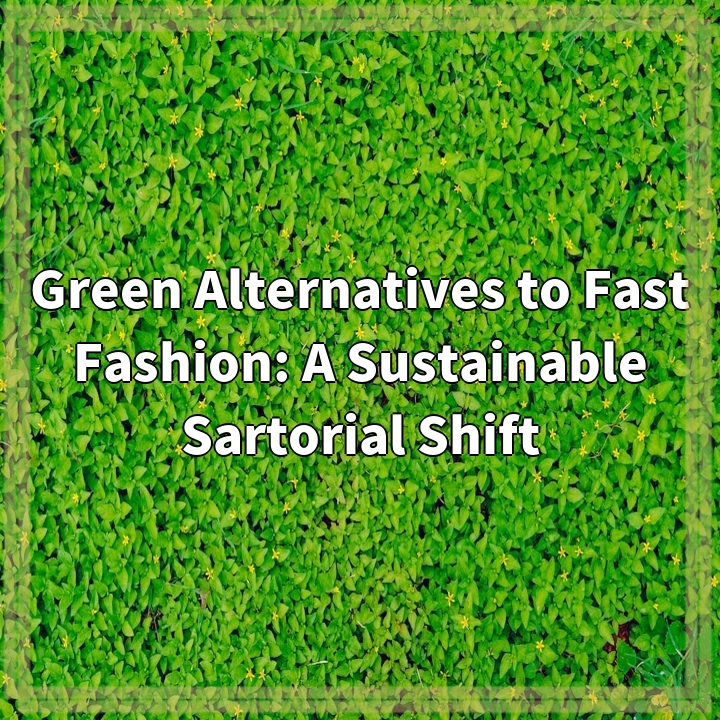
What it is:
Fast fashion is a business model characterized by the quick turnover of clothing collections inspired by current fashion trends. This phenomenon has gained immense popularity over the past few decades, offering affordable and trendy clothing options to consumers. However, fast fashion comes with a heavy environmental and social cost.
Real-World Problems Associated with Fast Fashion:
1. Environmental Impact:
Fast fashion relies on the production of cheap and low-quality garments, which leads to excessive resource consumption and a significant increase in waste generation. The fast fashion industry is one of the largest contributors to carbon emissions, water pollution, and landfill waste.
2. Exploitation of Workers:
To keep up with the demand for low-priced clothing, fast fashion brands often exploit garment workers in developing countries. Sweatshops, low wages, long working hours, and poor working conditions are common problems faced by workers in the fast fashion supply chain.
3. Human Rights Violations:
Fast fashion is also associated with human rights violations, including child labor and forced labor. In the race to produce cheap clothing, some brands neglect to ensure ethical sourcing practices, resulting in the exploitation of vulnerable individuals.
4. Toxic Chemicals and Pollution:
The manufacturing processes involved in fast fashion often rely on hazardous chemicals and dyes. These chemicals not only pose risks to the health of garment workers but also contaminate water sources and ecosystems, contributing to pollution.
5. Disposable Mindset:
Fast fashion encourages a culture of overconsumption and disposable fashion, where garments are worn only a few times before being discarded. This mindset not only devalues clothing but also perpetuates a cycle of waste generation and reinforces unsustainable consumption patterns.
By acknowledging these real-world problems associated with fast fashion, we can start exploring sustainable alternatives and working towards a more environmentally and socially conscious fashion industry.

Solutions to Fast Fashion:
Overcoming the challenges posed by fast fashion requires a shift towards more sustainable alternatives. Here are some solutions that can help address the environmental and social issues associated with fast fashion:
1. Sustainable Materials and Practices:
Embracing sustainable materials, such as organic cotton, hemp, and recycled fibers, can significantly reduce the environmental impact of the fashion industry. Adopting eco-friendly manufacturing processes and promoting ethical labor practices are also crucial steps towards sustainability.
2. Slow Fashion Movement:
The slow fashion movement promotes a more mindful and conscious approach to clothing consumption. This involves buying fewer, high-quality garments that are designed to last, instead of succumbing to fast fashion trends. Prioritizing timeless styles and investing in clothing made by ethical and sustainable brands can help reduce waste and promote sustainable fashion practices.
3. Second-Hand and Upcycled Fashion:
Another sustainable solution is to embrace second-hand clothing and upcycled fashion. Thrifting, swapping clothes with friends, or buying from vintage and consignment stores not only reduces waste but also adds uniqueness to one’s personal style. Upcycling, the process of transforming old or discarded garments into new pieces, offers a creative and sustainable way to give new life to old clothing.
4. Supporting Ethical Brands:
Choosing to support ethical and sustainable fashion brands that prioritize fair labor practices, transparency, and environmental responsibility is key for a sustainable sartorial shift. Researching brands, looking for certifications like Fair Trade or B Corp, and reading up on brand policies can help make informed decisions as a consumer.
5. Conscious Consumerism:
Being a conscious consumer involves being mindful of the true cost behind clothing and making intentional purchasing decisions. It entails considering factors such as the durability, quality, and longevity of garments, as well as their environmental and social impact. By embracing a more minimalist and sustainable mindset, we can reduce our reliance on fast fashion and contribute to positive change in the fashion industry.
By adopting these solutions and making sustainable choices, we can collectively work towards a more responsible and ethical fashion industry that values both the planet and its people.















